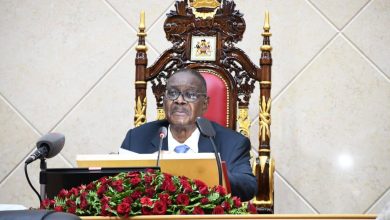Forex scarcity: Consumers’ pain, bankers’ headache
For years, Malawi has faced foreign exchange scarcity, largely due to the fact that the economy is more of an importing and consuming one instead of producing and exporting.
Data on international trade shows that Malawi is in deficit situations with its trading partners as the country imports more than it exports.
Further, Reserve Bank of Malawi (RBM) statistics indicate that on average the country’s import to exports ratio stands at one to three at $3 billion-worth of import requirements against $1 billion exports. This is one huge deficit that needs to be narrowed through import substitution and tightening the screws in the forex transactions.
While the foreign exchange has mostly been in short supply, the situation has worsened in the past five years when authorised dealer banks (ADBs) have been forced to ration while RBM intervened by introducing some measures, including mandatory conversion ratio for exporters at 25 non-governmental organisations (NGOs) was earlier this year cut from 70 percent to 50 percent. Besides, the central bank introduced a verification requirement for importers to demonstrate that their imports have been financed through the formal banking channel.
The situation has presented a tough balancing act for ADBs who have to balance the little available forex to allocate to customers.
In various platforms, including during their audience with President Lazarus Chakwera, manufacturers have consistently raised the issue of foreign exchange scarcity as one hindrance to doing business in Malawi. Some of them were forced to scale down and lay off staff as their production capacity declined due to shortage of raw materials.
On their part, individuals have also had their share of the pain and inconvenience abroad where supposedly pre-loaded debit cards have failed to transact. I recall a Facebook post by one traveller recounting an embarrassing experience she encountered in Dubai in the United Arab Emirates after her debit card declined to pay: “You are from Malawi? Cards from Malawi aren’t working.” She quoted the shop keeper as having said.
Naturally, the scarcity has created a flourishing parallel market that is stimulating speculation and pushing up prices as many importers claim to be sourcing forex through backdoor off-market rate trading arrangements.
In a recent conversation, one senior bank executive confided that the situation is a tough balancing act for ADBs. On the one hand they have to deal with honest customers seriously in need of forex for medical, leisure, education or business travel and on the other hand unscrupulous people abusing debit cards abroad to cash dollars and bring the cash home to sell on the parallel market. It is estimated that such transactions could earn the individuals up to 150 percent profit.
For every $1 000 an ADB would allocate in a month, the individuals buy at say K1.7 million, but when they cash out abroad, they sell the dollars for K4 million.
In most cases, the banker said, the unscrupulous individuals have access to more than one card such that an individual with 10 cards can make over K23 million in a month while depriving honest travellers and businesspeople. Remember the case of four women found with 200 cards, 50 each, at Kamuzu International Airport? Then the case of some women also found with scores of cards in South Africa?
What I see is that things have reached a point where trust has been eroded. The ADBs seem not to trust anyone and the customers are left frustrated and inconvenienced. Not a good scenario, I must say.
Export growth is critical to attainment of Malawi 2063, the country’s long-term development strategy that envisages diversification of export products within the agricultural sector and towards other sectors, including mining and tourism as having potential to make a difference.
Forex challenges will end the day we, as a country, start doing things that will generate the forex through exports of quality goods and services. To achieve that, the business climate needs to be improved with a bias towards stimulating manufacturing for exports. Further incentives for citizens living abroad should be reviewed and improved to motivate them to channel their forex through formal channels.
I believe it is possible to ease the pain and inconvenience the economy is experiencing.



